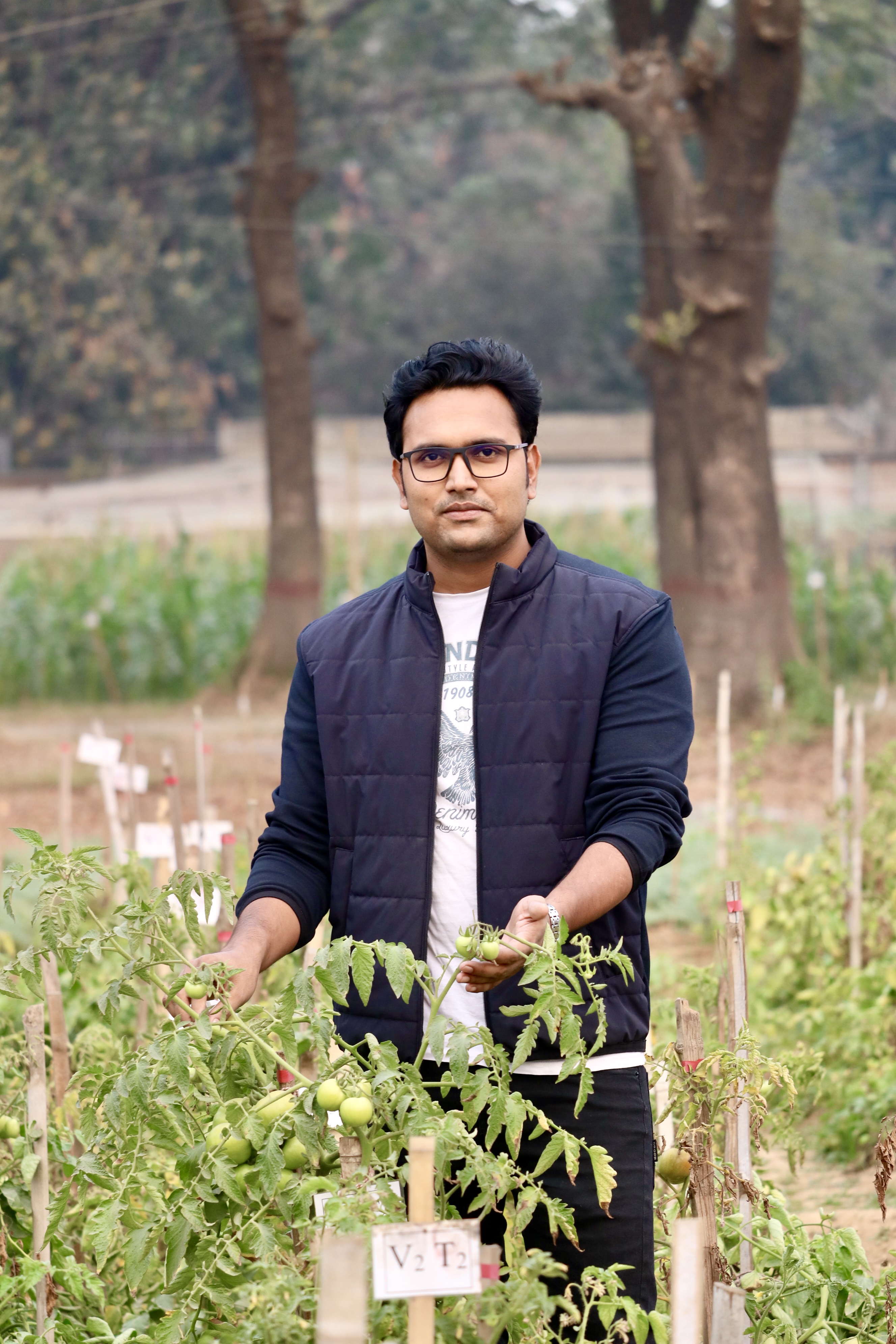Md. Nasir Hossain Sani

Presentation
A dedicated young researcher in the field of agriculture, horticulture, and agroforestry, with a strong educational background and a passion for sustainable agriculture and environment. Possesses skills and expertise in plant nutrition and crop physiology with particular regard to the biostimulants, beneficial microbes, organic amendments and climate change.
Research
My doctoral research is focused on the profiling and transforming digestates into valuable products for sustainable agriculture. The project investigates how feed sources, biogas operations and other factors alter the resultant digestates in terms of their composition and effects on crop growth and quality with the plausible strategic development of an integrated digestate valorization approach for manufacturing digestate-derived bio-fertilizer and other bio-based products from a sustainability and circular bioeconomy context.
Background
Education:
Erasmus Mundus Joint Master’s Degree (EMJMD) in Sustainable Tropical Forestry from the University of Copenhagen (2019-2020), Denmark and Bangor University (2020-2021), UK.
Master of Science in Horticulture (2018), Sher-e-Bangla Agricultural University, Bangladesh
Bachelor of Science in Agriculture (2015), Sher-e-Bangla Agricultural University, Bangladesh
Employment:
Doctoral researcher, Sveriges Lantbruksuniversitet (SLU), Alnarp, Sweden (April 2023-present)
Teaching
BI1405: Horticulture Production Physiology
Supervision
MSc-student Herath Maddumabanda, assistant supervisor
Current research projects
Upcycling nutrients from waste by-products into green products with aquatic plant
Selected publications
Sani, M.N.H., Amin, M., Bergstrand, KJ. et al. Harnessing biostimulants from biogas digestates for high-value resource recovery: a review. Environ Chem Lett (2024). https://doi.org/10.1007/s10311-024-01801-8
Fan, H., Liao, H., Shen, Y., Sani, M. N. H., Yong, J. W. H., & Song, J. (2024). Unravelling the physiological and molecular mechanisms of leaf color change in Acer griseum through multi-omics analysis. Plant Physiology and Biochemistry, 216, 109198. https://doi.org/10.1016/j.plaphy.2024.109198
Chowdhury, M. S. N., Sani, M. N. H., Siddique, A. B., Hossain, M. S., & Yong, J. W. H. (2024). Synergistic effects of biochar and potassium co-application on growth, physiological attributes, and antioxidant defense mechanisms of wheat under water deficit conditions. Plant Stress, 12, 100452. https://doi.org/10.1016/j.stress.2024.100452
Sani, M. N. H., Amin, M., Siddique, A. B., Nasif, S. O., Ghaley, B. B., Ge, L., ... & Yong, J. W. H. (2023). Waste-derived nanobiochar: a new avenue towards sustainable agriculture, environment, and circular bioeconomy. Science of the Total Environment, 166881. https://doi.org/10.1016/j.scitotenv.2023.166881
Sani, M. N. H., Yong, J. W. H. (2022). Harnessing Synergistic Biostimulatory Processes: A Plausible Approach for Enhanced Crop Growth and Resilience in Organic Farming. Biology, 11, 41. https://doi.org/10.3390/biology11010041
Sani, M. N. H., Islam, M.N., Uddain, J., Chowdhury, M.S.N., Subramaniam, S. (2020). Synergistic effect of microbial and nonmicrobial biostimulants on growth, yield, and nutritional quality of organic tomato. Crop Science, 60 (4), 2102–2114. https://doi.org/10.1002/csc2.20176
Sani, M. N. H., Hasan, M., Uddain, J., Subramaniam, S. (2020). Impact of application of Trichoderma and biochar on growth, productivity and nutritional quality of tomato under reduced N-P-K fertilization. Annals of Agricultural Sciences, 65 (1), 107-115. https://doi.org/10.1016/j.aoas.2020.06.003
Karim, M.N., Sani, M. N. H., Uddain, J., Azad, M.O.K., Kabir, M.S., Rahman, M.S., Choi, K.Y & Naznin, M.T. (2020). Stimulatory Effect of Seed Priming as Pretreatment Factors on Germination and Yield Performance of Yard Long Bean (Vigna unguiculata). Horticulturae, 6, 104. https://doi.org/10.3390/horticulturae6040104
Ahmed, S., Sarker, S.K., Friess, D.A., Jacobs, M., Islam, A., Alam, A., Suvo, M.J., Sani, M. N. H., Dey, T., Naabeh, C.S.S. and Pretzsch, H. (2022). Salinity reduces site quality and mangrove forest functions. From monitoring to understanding. Science of the Total Environment, p.158662. https://doi.org/10.1016/j.scitotenv.2022.158662